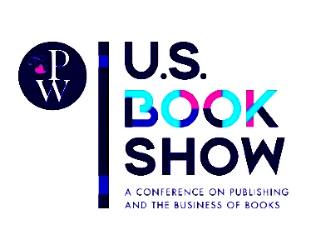AI in Publishing: A Tool of the Future
Let's Talk About AI, by Kim Childress
"The time has come, the Walrus said, to talk of many things..." —Through the Looking-Glass, by Lewis Caroll

AI Is Here to Stay

Artificial Intelligence (AI) was a central theme at the 2025 PW US Book Show. As Dan Simon of Seven Stories Press put it, “How we act at this pivotal moment in history will shape the future.” For editors and publishers, remaining adaptable, informed, and open-minded as technology evolves is no longer optional—it’s essential. As I’ve shared before, being an editor of excellence requires knowledge of new and emerging trends. Today, that means understanding the rise of AI and its impact on publishing.

-Life Beyond R2D2
At its best, AI should be seen as a tool, not a replacement.
- Everyday AI: Even autocorrect in Word is a form of AI. Writers already rely on spellcheck; AI can extend that assistance into proofreading and polishing.
- Marketing & Promotion: Authors can input original content and prompts into AI to create repurposed posts for social media, websites, blogs, or newsletters—maximizing reach from a single piece of writing.
The key? The author’s voice must come first. AI should enhance and edit—not replace—the writer’s original work.

Streamlining the Paperwork
AI can save hours on repetitive tasks like filling out forms, drafting presentations for publication boards, or even generating first-draft marketing plans. With detailed prompts and careful fact-checking, I’ve used AI to cut hours of admin work into minutes—time that can be redirected back into the creative process.

The Controversy
While AI is here to stay, its role remains controversial.
Impact on Entry-Level Roles: Traditionally, junior staff gained experience by handling tasks like forms and research. AI shortcuts can bypass that valuable training ground. The challenge for the industry is deciding how to integrate AI without losing these pathways.
AI-Created Content: Artwork generated by AI is widely rejected—rightly so. It relies on stolen property, and this is unlikely to change. In writing, AI-generated content lacks emotion, voice, and authenticity. Storytelling—the heart and soul of publishing—cannot be replicated by code.
As an editor, I can spot when AI has taken over. The personalization is missing, the unique author’s voice disappears, and telltale phrases (like the infamous “in conclusion”) give it away.

Research and Inspiration
AI can also serve as a powerful research assistant. Before AI, the internet already opened endless avenues of exploration. AI simply refines that process.
For one example, while editing a mystery novel, I asked AI: “What happens when someone finds a dead body at home?” The responses gave me a foundation to build on, then I dug deeper with specific follow-up prompts. This is where AI shines—not in writing stories for us, but in helping us fill in details and spark ideas.
That said, AI in drafting is a slippery slope. I advise against using AI for original content.

Publishing Industry Takeaway
At the 2025 PW US Book Show, two themes dominated: AI and mentoring the next generation. Both underscored the importance of adaptability. Publishing has always been a turbulent industry—when is it not?
Yet meeting peers in person reminded me why I do this work. Even in controversial times, I felt hope for the future. As an industry and as a creative community, our responsibility is to draw together, use the tools wisely, and never lose sight of what matters most: authentic storytelling and sharing the love of reading. Especially in future generations.

Kim Childress
Founder, Childress Ink ~ Ink-a-Dink
Author ~ Editor ~ Reviewer ~ Speaker
With over thirty years of experience in publishing, Kim Childress is an award-winning editor, author, speaker, and reviewer. She has built a distinguished career while also raising a personal focus group—her four children—whose experiences have enriched her insights into children's and young adult literature. More.
